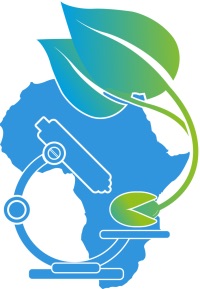
July 24, 2019, by Lexi Earl
AfriPlantSci 2019: Healthy Plants, Healthy People, Healthy Planet: Building African capacity to tackle African Plant Health Challenges in Africa
This post is written by Dr Silvia Busoms and Assoc Prof Levi Yant
It’s an exhilarating time for outward-looking researchers who wish to engage with the rest of the world. It has never been easier to make links with like-minded workers anywhere to team up together to tackle real world problems. As a result, international research networks are multiplying as research itself has become truly globalised. Forward thinking institutions recognise this and are promoting programmes with this explicit goal.
Recently we organised and taught the AfriPlantSci 2019 initiative, which aimed to increase capacity in plant science across Africa through training, technology transfer, and network development. One motivation was to enable an African voice to be present in global scientific discourse. A second was to engender the capacity to do the top plant science in the world in Africa, by Africans. These are big goals, but it’s impossible to affect change without such aspirations. AfriPantSci 2019 was supported by the The Alliance for Accelerated Crop Improvement in Africa, John Innes Centre, and Pwani University.

Levi giving a lecture
Upon the initial call for the course, the response from interested African researchers was immense: an astonishing 620 applicants sought the 23 positions. The outstanding participants we eventually did enrol came from 8 African countries and highly diverse backgrounds (including agronomists, molecular biologists, pathologists, biochemists and biotechnologists). This underscores the desire among African scientists to engage with academics around the world to build meaningful links and participate in advanced training.
We held the 2019 workshop at Pwani University (Kilifi, Kenya), with the beautiful backdrop of the Indian Ocean. Sessions focused on a wide range of topics: from building ‘soft’ skills such as enhancing collaboration and grant writing, to genome and pest bioinformatics, to laboratory fundamentals, golden gate cloning, and abiotic stress theory and experimental practice. To accompany the lab sessions, participants were taught about related cutting edge research advancements and the theory behind them from invited guest lecturers and group leaders. These lectures were open to the wider Pwani University student body and generated a lot of interest across faculties at the University. It was truly inspiring to see such excitement for plant and molecular biology-related research across campus.

Silvia teaching on species distribution
The revolution in plant genomics has opened up new perspectives and opportunities for plant breeders who can now apply molecular markers to assess and enhance diversity in their germplasm collections, to introgress valuable traits from new sources, and to identify genes that control key traits. However, it is the duty of universities and scientists from public and private-sectors to improve dialogue with plant breeders. Many of the participants are members of local institutions of agricultural research and they are determined to improve rural development and eradicate food insecurity and poverty of farmers. At the AfriPlantSci workshop we aimed to provide new incentives, knowledge and funding mechanisms that promote the translation of new innovations in plant science into concrete benefits for farmers, enhancing the links and communication skills of the participants.


Students working in the lab
Participants were clear from the outset about their research priorities and we could therefore tailor our teaching to their interests. Coming from directly affected countries, the impact of global climate change on crop production was a major and increasing concern for all. They are already affected by ongoing temperature increases and changes in precipitation resulting in increased drought, leaching of soil nutrients, increased soil salinization, and reductions in water availability. Thus, in our sessions we focussed on ways to understand and translate the strategies adopted by plants against abiotic stresses and the common “omic” approaches used in plant stress research, bringing evolutionary biology and physiology toward applications in crop improvement. This included hands-on sessions in detailed soil environment characterization, plant stress tolerance physiology, and local adaptation testing. Most of the participants were interested in African crops affected by these problems and we consistently had engaging discussions that brought the theoretical and lab-based science alive and into the real world.
From our side, we feel that this 2-week workshop was a tremendous success. We believe that participants, facilitators and organisers will benefit a lot from the course. It was hugely fulfilling to meet, network and form potential future collaborations with participants, all of whom were so talented, enthusiastic and passionate about using plant science to improve livelihoods. The chance to teach and work with such enthusiastic researchers and students was a privilege and it was obvious that we interacted with future leaders of African plant science.
We are in the process of organising another course in 2020, led by the University of Nottingham. Interested parties are encouraged to reach out to either of us: Sylvia.busoms@nottingham.ac.uk or levi.yant@nottingham.ac.uk. We found AfriPlantSci 2019 a hugely rewarding experience and we encourage other individuals and institutions to participate in AfriPlantSci 2020 with us!

Thanks for the Information. Following from https://www.seku.ac.ke/
nice blog
nice blog